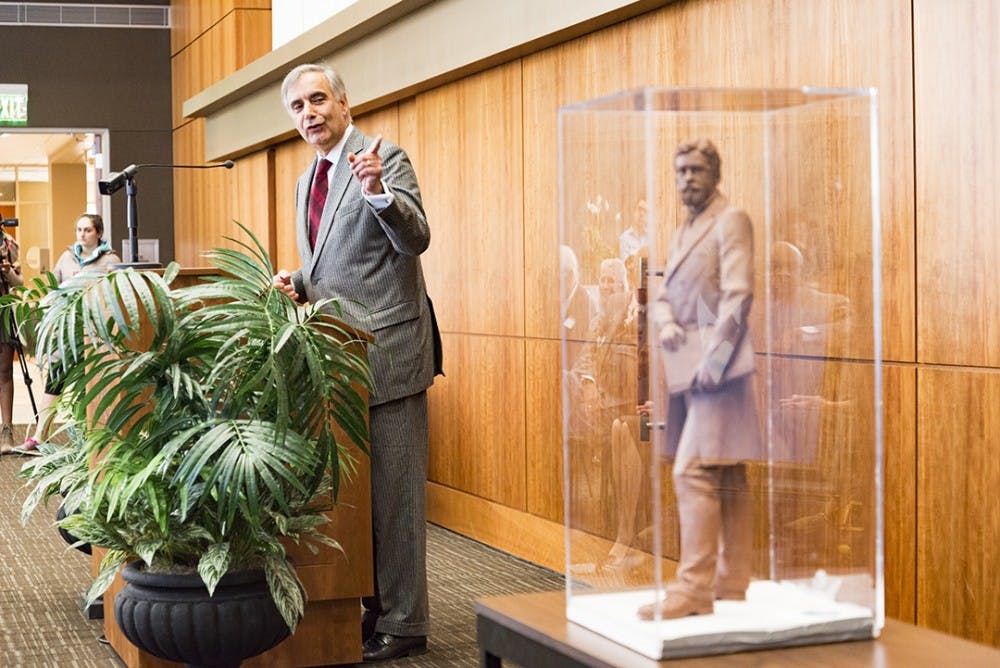USC's first African-American professor, Richard T. Greener, will be memorialized with a statue outside the Thomas Cooper Library this fall. The model was unveiled on Jan. 30, Greener's 173rd birthday, at the Office of Multicultural Student Affairs' Black History Month kickoff event.
“We not only honor a man, but we honor a more complete telling of our university’s rich history,” said John Dozier, chief diversity officer for the Office of Diversity and Inclusion.
Education professor Christian Anderson explained why Greener will become the first historical figure to receive a statue on campus almost 150 years after he started teaching. In 2010, college of education professor Katherine Chaddock visited Harvard and saw a plaque commemorating Greener as their first African-American graduate, and she wondered why USC had nothing recognizing him as the first African-American professor.
Chaddock posed this question to her history of higher education students, who agreed with her that the university should memorialize Greener in some way. The idea of the statue originated from a 2012 ideas competition.
The statue is expected to be finished this fall and costs approximately $250,000. The university is fundraising for a $100,000 endowment that will support an annual symposium and programming.
“We don’t want this just to be a statue that stands outside the library. We want it be a living memorial that goes on every year,” Anderson said.
According to President Harris Pastides, this is the first project to be authorized by the board of trustees without already being funded.
Philadelphia-born Greener graduated from Harvard in 1870 and came to USC to teach in 1873 during the Reconstruction period when USC was the only desegregated public institution in the South. Greener was a librarian at the South Caroliniana Library and attended law school while teaching. He also pushed legislators and the general assembly to fund 124 full scholarships for African-American students.
“Even though he continued always to the end to call himself a South Carolina exile … I believe that this beautiful statue will finally bring professor Richard T. Greener out of exile for once and for all,” Pastides said.

